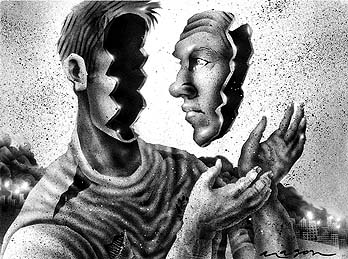Dear Friend,
You inquired so honestly about why I am committed to a Reformed vision of life that I feel compelled to at least give you a brief overview. I should note that Reformational theology offers various perspectives and emphases that may differ continentally and confessionally. However, I offer somewhat of a harmonious account that would make the Dutch, Scottish, and Puritan traditions relatively satisfied.
First, it’s important to note that I am Reformed in the catholic sense. By “catholic,” I mean in the sense that I have high regard for other traditions. While I am committed to many features of the 16th Century Protestant Reformation (see below), I am in no way committed to abiding by every exegetical insight that sprung from that era. However, when I do disagree with my forefathers, I don’t do it flippantly but with tremendous respect and caution. They were so loyal to the Scriptures that when I disagree with their interpretation, I do it with as much humility as possible.
Second, I am compelled by the Reformed faith because it exalts God to a place of highest honor. As Calvin notes: “The world was no doubt made, that it might be a theatre of the divine glory.” Of course, other traditions exalt God, but the Reformed faith places God as the center of all thinking, living, doing, and abiding. In a culture so heavily invested in the wants and desires of men, the Reformed tradition places the glory of God above all earthly glories.
Third, and perhaps one of the central aspects that drew me to the theology of Calvin, Luther, and Bucer was their immense love for the Holy Bible. The Bible was, for them, the central and primary authority over all matters of faith and practice. Instead of relying on methods that excuse or draw us away from the text, the Reformed faith is unapologetically biblical. God is, and therefore everything flows from that presupposition.
Fourth, and I owe this largely to Martin Luther, but what draws me more and more every day to the Reformed faith is its principle that when you sing you pray twice (Augustine). Luther believed that the congregation needed to be committed to singing God’s words and sound theology. I still recall my first experience in a Reformed church and singing:
His kingdom cannot fail;
He rules o’er earth and heav’n.
The keys of death and hell
To Christ the Lord are giv’n.
For the Reformed, the congregation is the choir.
Finally, I am Reformed because of Abraham Kuyper’s mission to apply the Christian faith to every sphere of life. He once wrote: “There is not a square inch in the whole domain of our human existence over which Christ, who is Sovereign over all, does not cry, Mine!” For the Reformed, to be a Christian is not just a state of being but a verb. A Christian christianizes. He brings the joys of heaven to everything he touches on earth.
If I had more time, I’d talk about how the Reformation renewed a true vision of the Church, but I think my outline above should suffice. Again, thanks for your question, and I look forward to your feedback.
Yours Truly,
Pastor Brito









 Some people dwell so much on their sinfulness that they find themselves constantly bombarding their status with doubt. Am I really a Christian? Am I worthy? These questions are not atypical of those who grow up in environments where internalized Christianity is emphasized. There is a healthy form of self-examination and Paul informs Pastors (II Corinthians 13:5) to encourage parishioners to examine themselves. At the same time, there is a difference between self-examination and introspection that is not often considered.
Some people dwell so much on their sinfulness that they find themselves constantly bombarding their status with doubt. Am I really a Christian? Am I worthy? These questions are not atypical of those who grow up in environments where internalized Christianity is emphasized. There is a healthy form of self-examination and Paul informs Pastors (II Corinthians 13:5) to encourage parishioners to examine themselves. At the same time, there is a difference between self-examination and introspection that is not often considered.